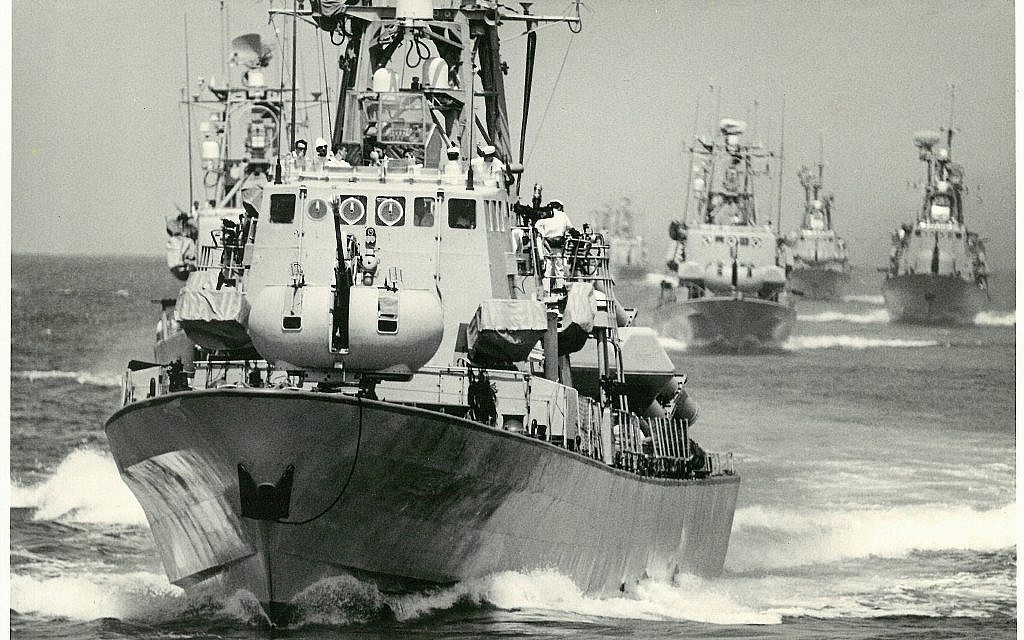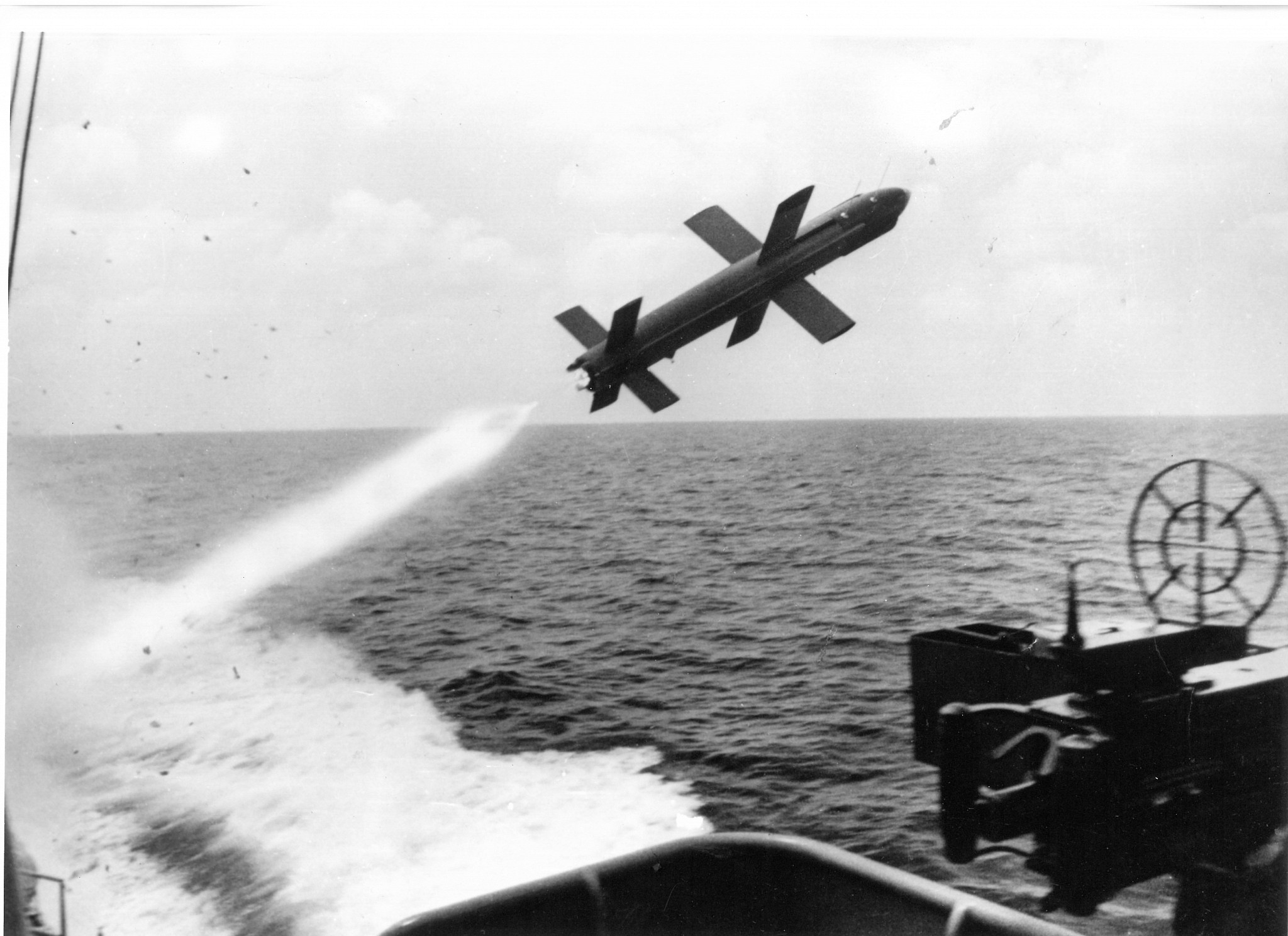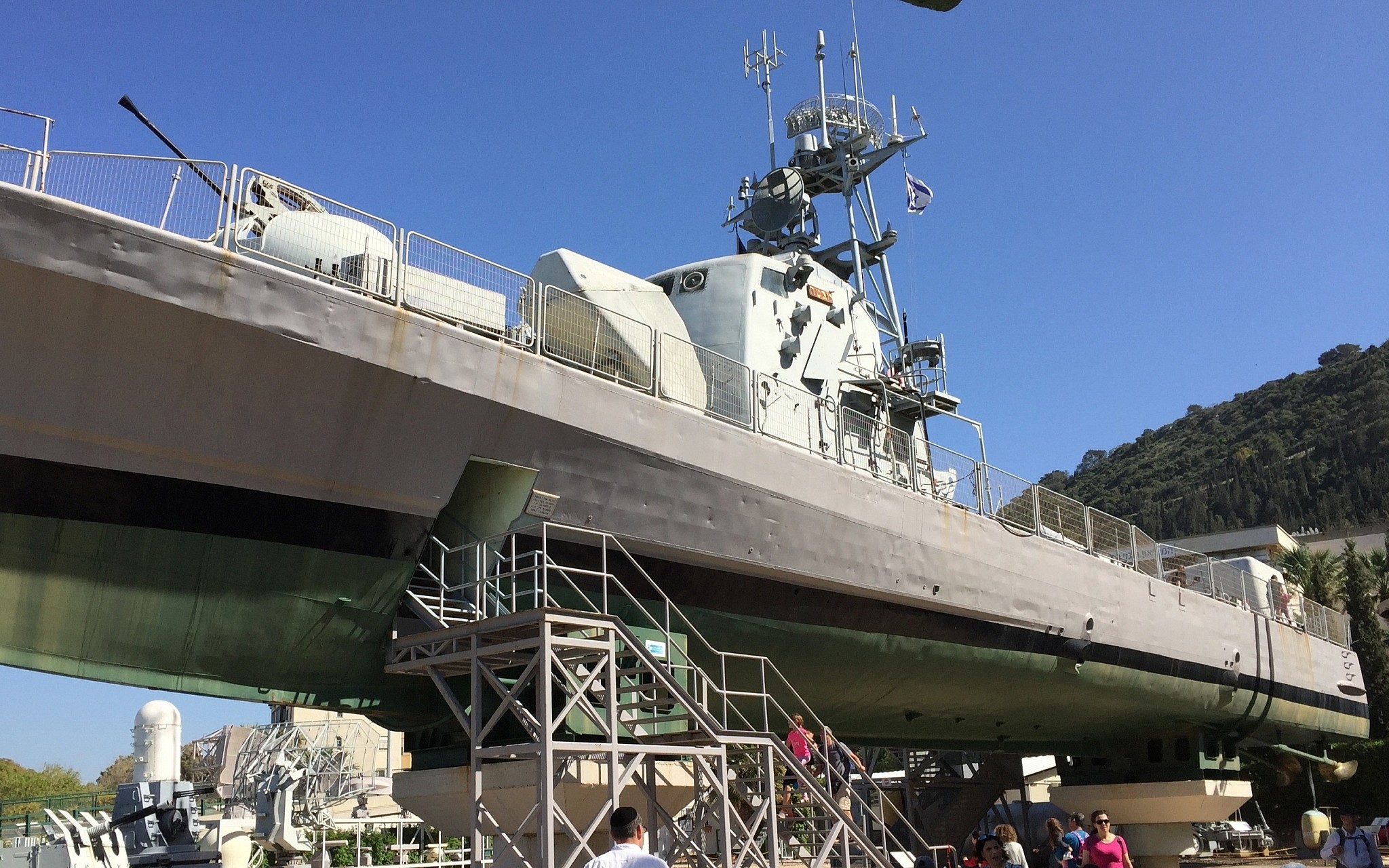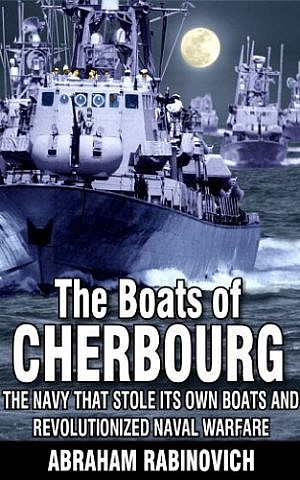
Posted on 04/26/2018 7:57:43 PM PDT by sukhoi-30mki

Israeli missile boat flotilla on maneuvers. (Israel Government Press Office)
On New Year’s Eve 1970, Israel Radio reported the arrival in Haifa of five newly built Israeli patrol boats which had escaped from a Cherbourg shipyard where they had been embargoed by the French government for political reasons. The brazen getaway on Christmas Eve into the teeth of a Force Nine gale raging in the English Channel galvanized the international media. News organizations sent up planes looking for the boats during the coming week as they raced for home.
I had joined The Jerusalem Post just a few months before and thought “What a great story.” I was sure that veteran Israeli journalists would soon get their teeth into it. However, the story behind the story would be classified and remained hidden.
Fast forward five years. Israel’s top military brass, academics and other experts were participating in an international symposium in Jerusalem on the Yom Kippur War, two years before. At my paper, coverage of key panels was divided among reporters. One of the events not covered was a talk by the navy commander, Admiral Binny Telem. I followed the media closely, but had heard virtually nothing of naval activities in the war. Curious about what Telem might have to say, I dropped in after finishing my assignment.
His talk proved astonishing. The navy, he revealed, had not only been involved in battles against the Egyptian and Syrian fleets but had engaged in battles, for the first time since the invention of cannon, involving not guns but missiles with built-in radar which enabled them to pursue moving targets.
No other navy in the West had such a weapon system.

A launch of Israel’s Gabriel Missile (Israel Aircraft Industries)
Unknown to Israel when it began its project, the Soviet Union was also developing missile boats. It was these vessels, passed on to the Arab navies, that Israel would encounter in the Yom Kippur War. The Arabs had twice as many missile boats as Israel and their missiles had twice the range of Israel’s, which enabled them to always get in the first salvos.
But the Soviet-made vessels did not have what the Israeli vessels had – electronic and other systems to divert incoming missiles by providing them with false targets. All 54 missiles fired at the Israeli vessels missed, throwing up enormous geysers as they exploded in the sea. Almost all the Arab warships which engaged were sunk, without a single Israeli loss.
After three days, the Arab navies did not venture out of their harbors and the vital sea lanes to Haifa remained open. Compared to the fierce battles waged by Israel on land and in the air, with their heavy losses, the total victory at sea was stunning.
Again, I thought, “What a story.” But amidst all the revelations that emerged at the symposium, Telem’s talk drew scant attention.
Epiphany, mid-stride Fast forward another six years. 1981. Walking down the Ben-Yehuda pedestrian mall in central Jerusalem, thinking random thoughts not connected to the navy, I had an epiphany that stopped me in my tracks.
Might those missile boats that performed so brilliantly in the 1973 war be the same “patrol boats” that had escaped from Cherbourg a few years earlier? That would really be a story.
It could, among other things, explain why the Israeli government had risked its diplomatic relations with France in order to run off with five embargoed patrol boats. Perhaps they were not simple patrol craft, as we had been told, but platforms that were to be converted to revolutionary missile boats.
This time I decided to grab the story by the neck. I wrote to then-Defense Minister (and future 7th president of Israel) Ezer Weizman to outline the story that had taken shape in my head, and to ask whether I would have the ministry’s cooperation if I wrote a book about it. The minister himself replied: The subject was too sensitive, he wrote, to be made public at this time.
Implicitly, however, he had confirmed that the missile boats were indeed the Cherbourg boats. Weizman was not long afterwards replaced by Ariel Sharon to whom I sent a similar query and from whose office I received a similar reply. In 1983, Sharon was forced out after the Sabra/Shatilla massacre in Beirut and the defense portfolio was temporarily shifted to prime minister Menahem Begin.
I duly sent the same query to the prime minister’s office. This time I was informed that it had been forwarded to the navy.
To my delight, I shortly received an invitation to naval headquarters in Tel Aviv. The navy captain who heard me out was encouraging. At his request, I left a copy of a book I had written on the 1967 battle for Jerusalem for him to look at and a follow-up meeting was arranged soon after. This one proved awkward. The captain, looking solemn, said that the navy had recently cooperated with an Israeli navy veteran who made a feature film about his unit. The navy command was unhappy with the results and a decision had been made – apparently after my request — not to lend the navy’s prestige again to any such outside enterprise.
Deeply disappointed, I made ready to rise when the officer stopped me.
“If you decide to pursue the book on your own, I can give you the phone numbers of a couple of people who might be able to help you.” He wrote down the names and numbers of two men and handed them to me. He declined to tell me who they were. His gesture was puzzling. How could I write a book on the subject if the navy did not give me access to its personnel?
It would be a while before I understood what was happening: The navy did not wish to be publicly linked to the project but it was interested in the story of the missile boats, an enormous accomplishment, being told. They were giving me a chance to run with the story while leaving the navy in a position to distance itself from the book if it disapproved of it.
The dead-end’s lead I had still not figured this out when I drove up to Haifa on a stormy winter night to meet the first man whose number the captain had given me, not knowing, in that pre-Google age, who answered to that name or what he might have to tell me.
Hadar Kimche had been expecting my call. As we sat before his fireplace, he revealed that he was a retired naval officer, the first commander of the missile boat flotilla and commander of the Cherbourg breakout. For the next four hours, I took notes as he outlined a mind-spinning tale of quasi-political hanky-panky and operational hocus-pocus surrounding the Cherbourg episode.
The second name I had was that of Kimche’s former deputy. Both men gave me the names of others who would lead me to still others, about 100 in all, including French officials in Paris and Cherbourg. Attempting to understand the technical aspects of the story despite being technically challenged myself, I received patient explanations from scientists, naval architects and engineers involved in the project who spelled out the various elements in the system.

One of the ‘Cherbourg boats,’ the INS Mitvach, on display at Haifa’s Clandestine Immigration and Navy Museum. (Amanda Borschel-Dan/Times of Israel)
The Cherbourg breakout and the missile battles, I learned, were but two sides of a three-sided tale. The third side, no less dramatic than the others, involved Israel’s fledgling military industries which, together with the navy, had conceived a new type of naval warfare, a creative process laced with moments of despair and flashes of brilliance.
The system they developed would enable an underfunded navy to deploy small, affordable, vessels carrying the devastating punch of large cruisers. Undertaken by a nation with a population then of only three million, the project would be pursued virtually round-the-clock for a decade. Key personnel for years worked every day in the year and late into the nights, except for Yom Kippur. (A few also worked on Yom Kippur.)
The effort marked the beginning of Israel’s emergence as “the start-up nation” and a major weapons innovator.
The missile boat flotilla -– now numbering 12 vessels – held its first full-scale maneuvers, employing innovative tactics, the week before the Yom Kippur War.
In the end, the navy made available to me all the personnel I wanted to interview and enabled me to go to sea with the missile boats on a training exercise, even to push the missile launch button during a dry run.
My resultant book, The Boats of Cherbourg, would be published by the United States Naval Institute Press.
The writer is also author of “The Yom Kippur War” and “The Battle for Jerusalem.” abra@netvision.net.il

The Boats of Cherbourg, by Abraham Rabinovich
Damn cool story. Would be a great movie!
A: The boats have nice lines.
B: There are curious looking bullseye devices in some of the windows on the bridge. I have seen similar on locomotives involved in snow removal. What are they called, who manufactured them and what, exactly, do they do?
It would make a damn fine movie
Ping.
I believe they are a type of windshield wiper. I’ve seen them on many other water craft. Perhaps they spin the water off?
the circles on ships windows are a circular windshield whipping device. they spin to keep the water off
I wonder if they also have some kind of super defroster function.
Below is one manufacturer's website, which has a video of the operation on the page. Essentially, the glass spins at a rapid rate flinging rain, spray, snow right off the glass so you have a clear port looking out into the storm. The ultimate windshield clearing device.
http://www.solarglide.com/products/wipers/sg-clearview/marine-circular-wiper
Odd that an article about the history of the Israeli navy doesn’t mention the USS Liberty.
..................
“Damn cool story. Would be a great movie!”
Except, if accurate, it would glorify Israel - and that is NOT PERMITTED by the Deep State, Democrats, or Hollywood.
Let’s hope it does glorify Israel. Israel and the USA need some glorifying in my opinion...like a whole lot more than “some”.
I would disagree that they stole the boats. The Israelis had already paid for the boats. It was just the French refused to release them (for political reasons).
The politics back then as now is hostile to Israel.Even if half true it would be an interesting read or movie.
bttt
Disclaimer: Opinions posted on Free Republic are those of the individual posters and do not necessarily represent the opinion of Free Republic or its management. All materials posted herein are protected by copyright law and the exemption for fair use of copyrighted works.